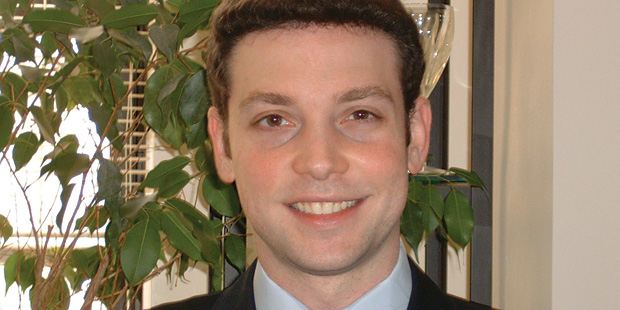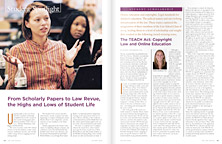Harlan Cohen Honored with Justice Jackson Award
Printer Friendly VersionNew York University School of Law graduate Harlan Cohen (’03), was awarded the Washington Foreign Law Society’s Justice Robert H. Jackson Award for his massive 578-page essay, The American Challenge to International Law: A Tentative Framework for Debate.
The award, named in memory of the preeminent U.S. Supreme Court justice who was also a member of the Nuremberg tribunal, is sponsored by law firm Chadbourne & Parke. The $2,500 prize is awarded for the year’s best published student article tackling international or comparative law.
Cohen’s essay appeared in the Yale Journal of International Law, having been chosen for publication by the Yale Young Scholars Symposium. The symposium selects one article for publication each year.
Cohen addresses the hypocrisy that seems to characterize U.S. foreign policy. Among other instances, he cites America’s backing for the Nuremberg, Yugoslavia, and Rwanda tribunals with its opposition to the International Criminal Court, and the U.S. refusal to ratify the Comprehensive Test Ban Treaty, despite its railing against states for developing weapons of mass destruction. He argues that the contrast between American support for the creation of the United Nations, and its unilateral advance on Iraq, is only the most recent example.
Cohen suggests that in light of the history of American international relations, U.S. inconsistency points to something more dangerous than mere pragmatism. “Such divergent actions may actually be informed by a coherent, specifically American conception of international law.”
This is a conception, he explains, that stems from a U.S. founding ideology that presupposes itself as the only truly legitimate state in the world. “During more isolationist phases, the United States, suspicious of the dangerous outside world, uses international law as a shield to protect its borders and its citizens. When roused to intervention, however, America girds itself in its utopian mission and takes action on behalf of the world’s ‘oppressed’ people, asserting the illegitimacy of the states against which it fights.” Cohen cites President Bush’s recent ultimatum to the Taliban, Clinton’s speech on Kosovo, Wilson’s address to Congress, and McKinley’s declaration of war against Spain.
His insightful essay concludes that ideology inevitably shapes the conception states have of international law, and that this obstacle must be overcome in order for international law to be truly global. Cohen suggests that to deal with this challenge, “international law needs to be seen less as a body of neutral principles waiting to be discovered, and more as a dynamic and interactive process of law creation. International lawyers must take an active role in the construction of an international order that builds upon, interacts with, and can eventually even reshape state ideology.”
Cohen said in an interview that “the goal should be to bring the U.S., and every other state for that matter, to the point where they follow international law because they feel committed to it, not because any institution has forced it upon them.”
“Harlan’s piece is a nuanced intellectual history of American foreign relations. This is a mature and impressive piece of work from a promising scholar,” said Cohen’s former teacher, constitutional law expert, Barry Friedman, NYU’s Jacob D. Fuchsberg Professor of Law.

